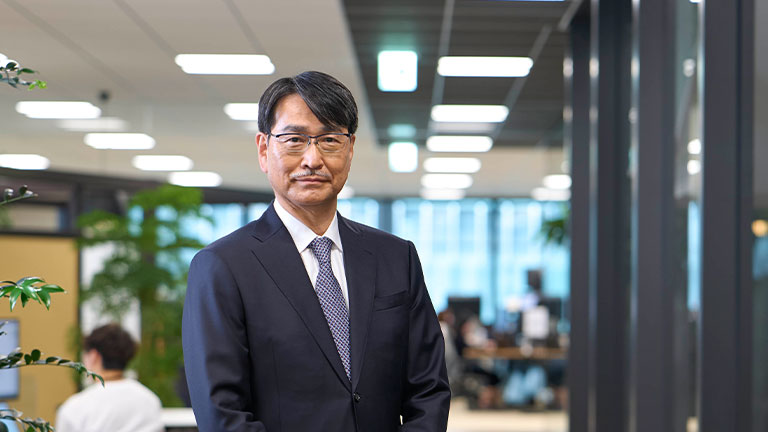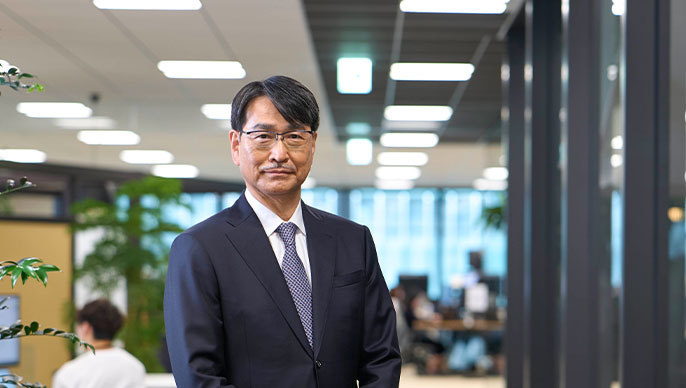CSO Message


We will contribute to enhancing corporate value and achieving sustainable growth by carefully balancing social and economic value.
Representative Director
Senior Executive Managing Officer
Chief Strategy Officer
Kazumasa Nakai
“Deeper sustainability management” is one of the corporate strategies set out in Medium-term Management Plan (MTMP) 2026. What progress has Mitsui made?
In MTMP2026, we defined “Creating Sustainable Futures” as our vision from the perspective of fusing business and sustainability. We set climate change, natural capital, and business and human rights as key themes for sustainability management. We are making steady progress in our initiatives for each theme, and seeing positive results, such as the strong ratings we received from external ESG rating agencies in the past fiscal year.
As one measure to address climate change, in FY March 2025 we completed the sale of the Paiton coal-fired power plant, making significant progress in reconfiguring our power generation portfolio and achieving our 2030 target of a 30% renewable energy ratio in our power generation assets ahead of schedule.
In terms of natural capital, we were able to demonstrate a stronger commitment both internally and externally, voicing our support for the Taskforce on Nature-related Financial Disclosures (TNFD) and disclosing the results of a LEAP analysis based on the TNFD recommendations, among other measures. As for human rights, we broadened the scope of and began additional human rights due diligence led by business units closer to the front lines, enabling more in-depth analysis of each business.
We also assigned personnel to our regional business units outside Japan and to each of our overseas and Japan blocs with the aim of strengthening our global sustainability initiatives, and established a structure in which the Corporate Planning & Strategy Division and the Corporate Sustainability Division play the central role in coordinating with each site. We now expect to see greater synergy in spreading awareness of company-wide policies on a global basis and collecting information on specific measures and related topics in each country.
Amid a variety of major changes in our operating environment and social issues, we have held discussions with numerous external experts and stakeholders over the past year to review the material issues (materiality) that we should be addressing. Discussions included the topic of incorporating the perspective of double materiality. We have newly specified “human rights” as a separate material issue, bringing the total number of material issues to six that serve as guidelines as we conduct each of our businesses. In light of this new materiality item, each business unit will formulate an action plan in line with its own growth strategy. We intend to conduct more in-depth sustainability management by reliably realizing greater social and economic value in each business.
Is the “fusion of business and sustainability” progressing smoothly?
A good example of such fusion is the Blue Point low-carbon ammonia project in the US. Our various strengths include the Chemicals segment’s long track record and partnerships in ammonia trading, and the Energy segment’s track record in supplying raw materials to power generation companies and expertise in carbon capture and storage. Combining these strengths will enable us to build a value chain unique to Mitsui and establish the production of environmentally friendly low-carbon fuel as a viable business.
While approaches to sustainability have recently seen a backlash in the US and Europe, the trend toward emphasizing sustainability is not going to change in the long term, and I believe that what we need to do fundamentally will not change. Keeping the balance between social and economic value in mind will further improve our business portfolio. This will help us gain stakeholder understanding and recognition for Mitsui’s strengths and value creation, which will drive corporate value and achieve sustainable growth over the medium- to long-term.